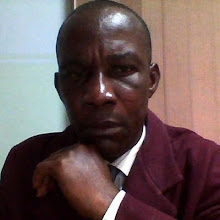As of February 26, 2025, here’s an overview of the latest developments involving Simon Ekpa, the American government, the United Nations, the International Criminal Court (ICC), Finland, and Canada, based on available information and current sentiment:
Simon Ekpa, who identifies as the Prime Minister of the "United States of Biafra" (a self-proclaimed entity not recognized internationally), has been a focal point of controversy since his arrest in Finland in November 2024. He was detained on suspicion of inciting violence and terrorism-related activities linked to his advocacy for Biafran separatism in Nigeria. Finland’s government, under President Alexander Stubb, has kept him in custody, with his detention extended as legal proceedings continue. Supporters claim this is an act of "transnational repression" at the behest of Nigeria, arguing he’s a political prisoner without evidence of international crimes. Critics, however, point to his alleged role in fueling unrest in Nigeria’s southeast, including through his leadership of the "Autopilot" faction of the Indigenous People of Biafra (IPOB). Posts on X reflect this divide, with some demanding his release under hashtags like #FreeSimonEkpa, while others see Finland’s actions as justified.
The American government’s involvement appears tangential but notable. The U.S. does not recognize the ICC’s jurisdiction and has recently escalated tensions by imposing sanctions on the court, including targeting ICC Chief Prosecutor Karim Khan with asset freezes and travel bans on February 13, 2025. This followed President Donald Trump’s executive order on February 6, 2025, condemning the ICC for issuing arrest warrants against Israeli leaders, which Trump called an overreach threatening U.S. sovereignty and allies like Israel. While Simon Ekpa’s case isn’t directly tied to these sanctions, some of his supporters on X have linked it to broader U.S. criticism of international bodies, suggesting a pattern of resisting globalist interference. There’s no direct evidence of U.S. involvement in Ekpa’s detention, though Vice President JD Vance’s recent remarks at the Munich Security Conference on February 17, 2025, have been cited by Ekpa’s backers as a platform that should address his situation.
The United Nations has not explicitly commented on Ekpa’s case, but it has been vocal about the ICC sanctions. On February 7, 2025, UN officials, including deputy spokesperson Farhan Haq, urged Trump to reverse the sanctions, calling the ICC a “fundamental pillar of international justice.” The UN’s broader stance on transnational repression could apply to Ekpa’s situation, though no specific UN action has been reported regarding his detention in Finland.
The ICC itself is embroiled in its own controversies, unrelated to Ekpa directly. Beyond the U.S. sanctions, the court faced criticism after Italy released a Libyan war crimes suspect, Osama Almasri Najim, on February 5, 2025, due to errors in an ICC warrant—a move now under investigation by ICC judges. This has raised questions about the court’s credibility, which Ekpa’s supporters on X have seized upon to challenge its jurisdiction and Finland’s cooperation with international legal frameworks. However, there’s no indication the ICC is involved in Ekpa’s case, which falls under Finnish national law.
Finland remains at the center of Ekpa’s situation. The Finnish government’s decision to hold him has drawn international attention, with Palestinian authorities and others urging the Netherlands (host of the ICC) to shield the court from U.S. reprisals—a call made on February 1, 2025, that indirectly highlights tensions around national sovereignty and international justice. Ekpa’s detention has fueled debates about Finland’s role in what some call a globalist agenda, though Finnish authorities frame it as a routine legal matter tied to security concerns.
Canada’s connection is less direct but surfaced in online discourse. On February 25, 2025, X posts noted Canada’s deportation of terrorists, contrasting it with Finland’s arrest of Ekpa, suggesting a double standard in how Western nations handle security threats. There’s no official Canadian government stance on Ekpa, but the comparison reflects how his case resonates in broader geopolitical conversations.
In summary, Simon Ekpa’s ongoing detention in Finland as of late February 2025 continues to stir debate, intersecting with U.S. sanctions on the ICC, UN calls for judicial independence, and varying national responses from Finland and Canada. The situation remains fluid, with no resolution in sight for Ekpa’s legal fate, while the ICC grapples with its own challenges amid international pushback. Sentiment on X shows a polarized narrative—some see Ekpa as a freedom fighter wronged by global powers, others as a destabilizing figure rightly detained—underscoring the complexity of these overlapping events.


Comments
Post a Comment